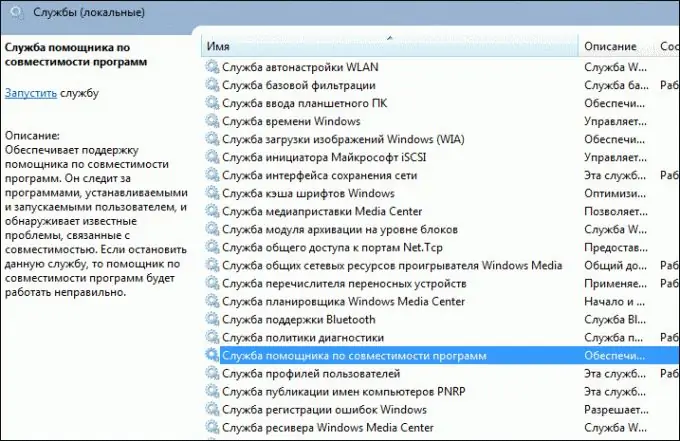Sometimes, in order to optimize the performance of a personal computer, the user can disable some system services, but then the question arises: which of them can be disabled so as not to harm their own PC?

System services
First, it should be said that disabling some system services on the Windows 8 operating system will not always lead to an improvement in computer performance. In most cases, changes in the operation of system services are simply invisible, and in addition, it must be remembered that a service once disabled in the future may be necessary. This is why you shouldn't forget which services have been disabled and which have not.
Finding and disabling system services
To change services and view them, you need to display a special menu, which is invoked using the services.msc command. This command must be entered in the Run menu, which is invoked by pressing the Win + R keyboard shortcut. You can do a little differently. To do this, you will have to go to the "Control Panel", open the "Administrative Tools" folder and select the "Services" item. After clicking, a whole list of various services installed on the user's personal computer will appear.
If you want to learn more about this or that service, then double-click on it with the left mouse button or by clicking the right mouse button to open the "Properties" menu. Here you can find out more specifically about the purpose of any service, as well as how to start it. It is worth noting that for some services, the startup type cannot be selected.
To optimize your personal computer, you can safely disable the following services: It is better to disable the remote registry, as this can have a positive effect on security; smart card - if you do not use it; print manager if you don't have a printer and don't use printing; you can disable the server service if the computer is not connected to a local network and is not used as a server; computer browser only when your computer is not using the network; homegroup provider - if the computer is not on a work or home network, then this service can also be disabled; secondary login to the system; NetBIOS over TCP / IP support module (if the computer is not on a working network); security center; Tablet PC Input Service; Windows Media Center Scheduler Service the theme service can only be disabled if you are using the classic operating system theme; secure storage; BitLocker Drive Encryption Service can be disabled if you have no idea what it is and are not using this service; Bluetooth support service, of course, if you do not have an appropriate adapter, you can disable it; Windows Search Portable Devices Enumerator Service (if you are not using Windows Search) Remote Desktop Services if you do not connect to the desktop remotely, then it can also be disabled; Fax, respectively, if it is not there; Windows backup - if you do not use it and do not know why you need it, then you can disable it. You can also turn off Windows Update, but only if you've already turned off Windows Updates.
All of these services can affect the performance of your computer, but it is worth understanding that you are doing everything at your own peril and risk.






